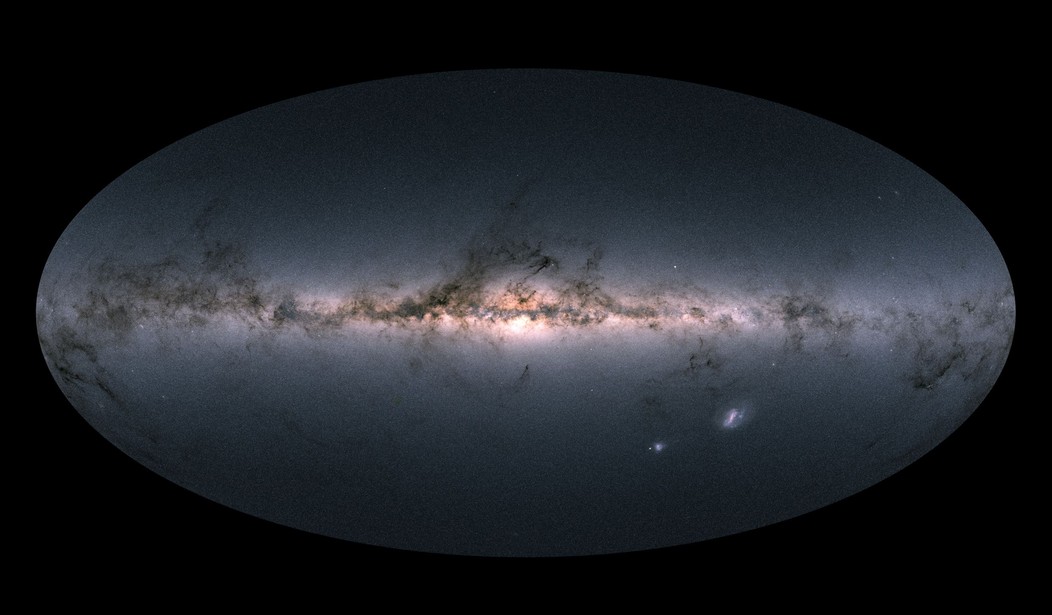When the James Webb Space Telescope was first launched, the scientific community knew that it was going to be a Very Big Deal. The instrument would allow us to peer further than ever across the depths of space (and backward in time) and do so across multiple bands of light. The JWST has delivered on all of those promises and more, sending many astronomers and physicists back to their chalkboards to reexamine previous theories and assumptions. One of the biggest examples of this phenomenon may have arrived this week. Dr. Rajendra Gupta, a theoretical physicist from the University of Ottowa made a remarkable announcement recently. He claimed that new data suggests that the universe is nearly twice as old as the 14 billion-year figure we've been given for a very long time. And if that's true, he further claims that there is no need for anything like dark matter to exist because the universe is behaving precisely as it should. That would really change the landscape of current astrophysics. (Science Alert)
Sound waves fossilized in the maps of galaxies across the Universe could be interpreted as signs of a Big Bang that took place 13 billion years earlier than current models suggest.
Last year, theoretical physicist Rajendra Gupta from the University of Ottawa in Canada published a rather extraordinary proposal that the Universe's currently accepted age is a trick of the light, one that masks its truly ancient state while also ridding us of the need to explain hidden forces.
Gupta's latest analysis suggests oscillations from the earliest moments in time preserved in large-scale cosmic structures support his claims.
Gupta went on to state that if the universe is 26.7 billion years old as his team believes, "the Universe does not require dark matter to exist." I'm obviously nowhere near smart enough to grasp everything these eggheads are talking about, but the layman's explanation for this part of it boils down to missing data. Previous studies all suggested that the universe is expanding faster than it should be based on the amount of physical matter we are able to observe in space. That's why physicists had to dream up dark matter (and its corresponding partner, dark energy) to explain what was being observed. But the vastly larger universe now being posited would allow for the apparent motion of all of the heavenly bodies.
That's part of the challenge and the wonderous nature of the JWST. It keeps peering further and further into space and further into the past, but it just keeps finding more "stuff." They still haven't found "the end" of the universe. If it arose from a big bang at some point and began expanding outward, there should be an outer edge someplace, right? And beyond that, there should only be empty space. (Okay... to be fair, there is a popular theory out there that claims that no space is completely empty, even in a perfect vacuum.)
The fascinating questions that still await us are almost limitless. What if the next space telescope is even bigger than the JWST and the next ones beyond that are even larger? What if we keep looking further and further and the universe just keeps going and going? What if it doesn't have an end? Just imagine what that might mean not only to the field of science but to religion and philosophy as well.
Mankind has spent much of history asking where all of this stuff that we see came from. Many attribute the origins to an act of God, whoever you interpret that to be. Others who didn't care for that answer came up with the Big Bang theory, though we're apparently not supposed to ask where the original spark came from. (Or where God came from, for that matter.) But a theoretically infinite universe might suggest that there was no beginning. And without a beginning, would that imply that there's no end? I believe the ensuing debates would be spectacular Some would declare that such a discovery would definitively prove the existence of God. Others would likely argue the opposite, saying that the lack of a beginning eliminates the need for a Creator. It's enough to make your head spin. For now, we may as well break out the popcorn and wait while the astrophysicists fight it out.








Join the conversation as a VIP Member